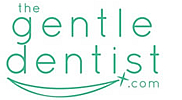Question: I have noticed that my breath has seemed to become worse after being on the new low carbohydrate diet. Is this my imagination or is there some scientific evidence behind it?
Dentist in Shelby Township Answers Question of Bad Breath with Low Carb Diet
As you look around the grocery or drug store checkout counters, you can begin to detect the American obsession with both getting rid of bad breath and losing weight. The displays are filled with gums, mints, and portable bottles of breath freshener. At the same time, magazines and books promise to reveal secrets-of-the-stars diets, low-fat diets, low-carb diets, and eat-whatever-you-want-and-still-lose-weight diets. But did you know that these two topics are related?
The Low Carb, Bad Breath Connection
In the early stages of one popular weight-loss plan, dieters reduce their intake of carbohydrates to a bare minimum, while eating as much meat and dairy products as they want. Dieters using this method have had some impressive weight-loss results, but the diet produces changes in digestion that can cause bad breath. Normally, the body burns carbohydrates for energy, but the low-carb diet works by getting the body to burn stored fat instead. During this process, byproducts, called ketones, are built up in the bloodstream. These chemicals are released through the breath, and many find the fruity smell offensive.
Bacteria and Periodontal Disease Make Things Worse
Bacteria are naturally present in the mouth, and they can sometimes cause or worsen bad breath. One type of bacteria is involved in the first stages of protein digestion, and if you’re on a low-carb diet, there’s usually a lot of protein available for these bacteria to work on. Unfortunately, the breakdown of high-protein foods produces the sulfurous compounds that can create bad breath. And if you have periodontal disease (an infection of the teeth and gums caused by bacteria), you may be already suffering from one of its side effects, bad breath. The combination of these bad breath-producers on top of the odor caused by ketones in the breath can be truly offensive.
What You Can Do
Twice-a-day brushing and flossing are crucial to keeping breath fresh because they help remove the bacteria and food particles that cause bad breath and periodontal disease. If your diet is high in protein foods, you might also want to brush your teeth and rinse your mouth after every meal. You might also want to add tongue cleaning to your routine because many of the bacteria that cause bad breath hide in the crevices of the tongue.
But if you’re suffering from ketone-induced bad breath, cleaning your mouth isn’t enough. Consider changing your diet plan to one that includes more carbohydrates, particularly healthful, low-carb vegetables like leafy greens, broccoli, cauliflower, cabbage, asparagus, and radishes. And don’t forget chlorophyll-rich fresh parsley, which is a traditional breath freshener.
It’s also important to drink plenty of water, which may help dilute the ketones in the bloodstream. Water helps the body produce saliva, which maintains the pH balance in the mouth and washes bacteria and food particles away from the teeth and gums. Both of these actions help keep breath fresh. To stimulate saliva production, you could chew on sugarless gum or suck on sugarless mints, particularly ones sweetened with Xylitol, which kills harmful bacteria.
How We Can Help
Even the most careful brushing and flossing can’t remove all of the bacteria from your mouth. For the most effective bacteria removal, you’ll need regular dental cleanings at least every six months. We’ll watch for and treat any periodontal disease that we find. We can also show you the most effective ways to use a toothbrush, floss, and tongue cleaner. These steps, added to your own changes at home, should keep your breath fresh and clean. If you’re suffering from bad breath, why not give our office a call right now?
Dentist in Shelby Township Answers Question of Bad Breath with Low Carb Diet
If you would like more information about bad breath with a low carb diet, please call our Shelby Township office at 586-247-3500.

